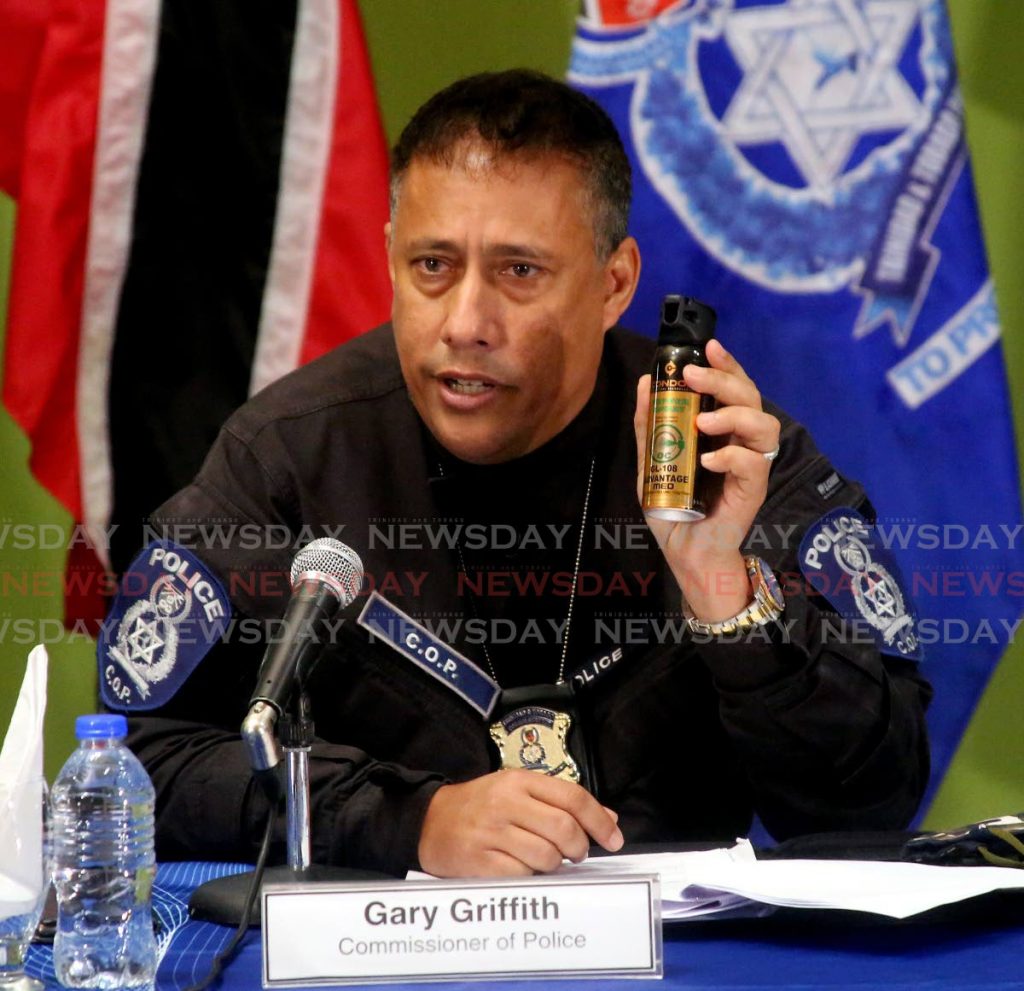First pepper spray, then respect

On Thursday night, Attorney General Faris Al-Rawi announced on a PNM platform in Belmont that the National Security Council had approved the use of pepper spray with a permit for personal safety.
It's to be hoped that both the regulations governing pepper spray and the process for applying for a permit will be expedited.
The Prime Minister first promised to consider the public use of pepper spray in December, after the murder of 18-year-old Ashanti Riley. In Parliament on Friday, Dr Rowley said Cabinet will consider the AG's proposed regulations, which will take a few weeks to prepare, but noted that the use of pepper spray will require a permit.
There have been calls for the use of the defensive spray as a defensive tool for women for more than a decade.
The AG tacked close to the controversial position of his Cabinet colleague Clarence Rambharat, claiming that the spray is a "double-edged sword."
Mr Rambharat had cautioned that pepper spray could be even more dangerous and deadly than a gun, because it was not subject to the same stringent safety protocols.
It was a straw man argument. While both are dangerous, only guns are designed to kill.
In January 2019, officers in the police Emergency Response Unit were to be issued Tasers and pepper spray and training to expand the capacity for non-lethal response. The sitting Police Commissioner first raised the option for officers when he served as National Security Minister in 2014.
The concern of the public should not be mollified by this government concession. There is more to be done to shape a society in which violence against women is not just unacceptable, but collectively disparaged and actively prosecuted.
That won't happen by giving women a long-overdue option defence or by regulating PH drivers.
The work must begin toward entrenching a culture of equality, respect and mutual support that is consistent, from early childhood education into adulthood. Children should grow up understanding that the rights of women are indistinguishable from human rights and should be defended and upheld just as rigorously.
More immediately, a Cabinet willing to fret about the potential dangers of pepper spray to women should be keen to appoint a task force to audit the real-world dangers women face every day in this country (are our leaders really so out of touch with the life of the woman in the street?).
Prosecution of crimes against women should be fast-tracked and properly case-managed. One accused in the kidnapping and murder of Andrea Bharatt had 35 out of 70 cases dismissed because of the failure of police to appear in courts in Arima, San Fernando, Chaguanas and Scarborough.
A review of vulnerable public areas, with zones of poor lighting or low visibility, should be addressed, alongside campaigns to clear overgrown empty lots and abandoned buildings.
Women and girls should not have their options for education and work limited not only by endemic sexist prejudice but also because it is not safe for them to travel.

Comments
"First pepper spray, then respect"